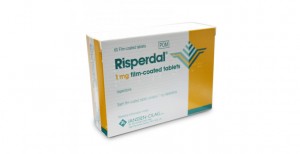Nationwide Risperdal Attorney
Risperdal Information and Failure to Warn Lawsuits
 Risperdal is a medication used in treating psychotic disorders, such as schizophrenia. It is used to manage hallucinations (both visual and auditory), delusions, and other disturbances in thought processes. It also is used in treating the symptoms of manic depression (bipolar disorder). “Negative symptoms,” like apathy, social withdrawal, and lack of motivation may also be improved with Risperdal. However, it is not used for patients with dementia. It can cause pneumonia, heart failure, or even sudden death in elderly patients who suffer from conditions associated with dementia.
Risperdal is a medication used in treating psychotic disorders, such as schizophrenia. It is used to manage hallucinations (both visual and auditory), delusions, and other disturbances in thought processes. It also is used in treating the symptoms of manic depression (bipolar disorder). “Negative symptoms,” like apathy, social withdrawal, and lack of motivation may also be improved with Risperdal. However, it is not used for patients with dementia. It can cause pneumonia, heart failure, or even sudden death in elderly patients who suffer from conditions associated with dementia.
How Does Risperdal Work?
Risperdal changes the effects of chemicals in the brain. While it’s not exactly clear how it works, it is known that it blocks the actions of both serotonin and dopamine, two neurotransmitters in the brain. It is important to remember that it is not a cure for any condition, it merely treats the symptoms associated with certain conditions. Risperdal relieves those symptoms fairly quickly in some patients, although it takes from three to four weeks to reach the recommended dose. In other patients, it could be months before significant improvements fully emerge. There should be a trial period during which the optimal dose of 6 mg per day is taken, after which an evaluation of the drug’s effectiveness is determined.
History of Risperdal
The U.S. Food and Drug Administration (FDA) originally approved Risperdal for adults suffering from schizophrenia although it was used “off label” to treat children and adolescents for a number of conditions. These included bipolar disorder, irritability, autism, and behavior disorders including Attention Deficit Hyperactivity Disorder (ADHD). In 2006, it was approved by the FDA to treat irritability in children and adolescents with autism. In 2007, Risperdal was approved to treat children and adolescents with acute mania or episodes related to Bipolar 1 disorder.
Risperdal is available in tablet form, an oral solution, or by injection. It is normally taken twice a day, either before, during, or even after meals. The liquid form is not to be mixed with tea or cola products. It is to be stored at room temperature and the liquid form should not be allowed to freeze.
Risperdal Side Effects
It is recommended that patients drink lots of fluids, as it is easier to get severely overheated and dehydrated while taking Risperdal. This is especially true in hot weather or during exercise. Patients will also want to avoid getting too chilly, as they may tend to be more sensitive to cold conditions. Avoid drinking alcohol, and take care when driving or operating machinery.
There are a number of drugs that interact or cause Risperdal to be ineffective. Make sure your doctor is aware of all prescription and over-the-counter medications, vitamins, and herbal products you use on a regular basis.
Besides the normal allergic reactions (difficulty breathing, hives, swelling of the face, throat, lips, or tongue, etc.) there are a number of other possible side effects of Risperdal. Some are minor, others are far more serious. Fever, stiff muscles, restless muscle movements, drooling, uncontrolled shaking, and convulsions are only a few of the more serious side effects. Less serious side effects include weight gain, headache, dizziness, insomnia, nausea, mild skin rash, and the list goes on.
Risperdal and Diabetes
While not conclusive, studies have suggested that Risperdal may be linked to diabetes. It is not clear why this is so, perhaps weight gain or perhaps the, as yet unknown, effects on blood sugar. Whatever the reason, because of the potentially higher risk of developing diabetes, those taking Risperdal must know the symptoms of diabetes–increased hunger, increased thirst, increased urination, fatigue, and blurred vision are just a few of the symptoms. Your physician should also monitor your blood sugar and weight while you are taking Risperdal.
Risperdal and Enlarged Breasts in Young Males
Risperdal may cause an increase the hormone, prolactin, leading to a condition in which boys and young men develop breasts. This is known as Gynecomastia. While it is non-cancerous, the development of breasts in young males causes embarrassment and can lead to long-lasting psychological harm. It is an irreversible condition, and it may be accompanied by pain and nipple discharge. Surgery might be necessary to correct the problem. In addition, elevated levels of prolactin may harm the reproductive system in males and might increase their risk of breast cancer.
The product labeling was insufficient in warning patients of the potential risks of Risperdal and Gynecomastia. As a result, Johnson & Johnson settled the first Risperdal Gynecomastia lawsuit in 2012.
We are accepting cases where young males have developed Gynecomastia as a result of taking Risperdal. Call now for your free case evaluation, as time is of the essence to preserve your rights.

